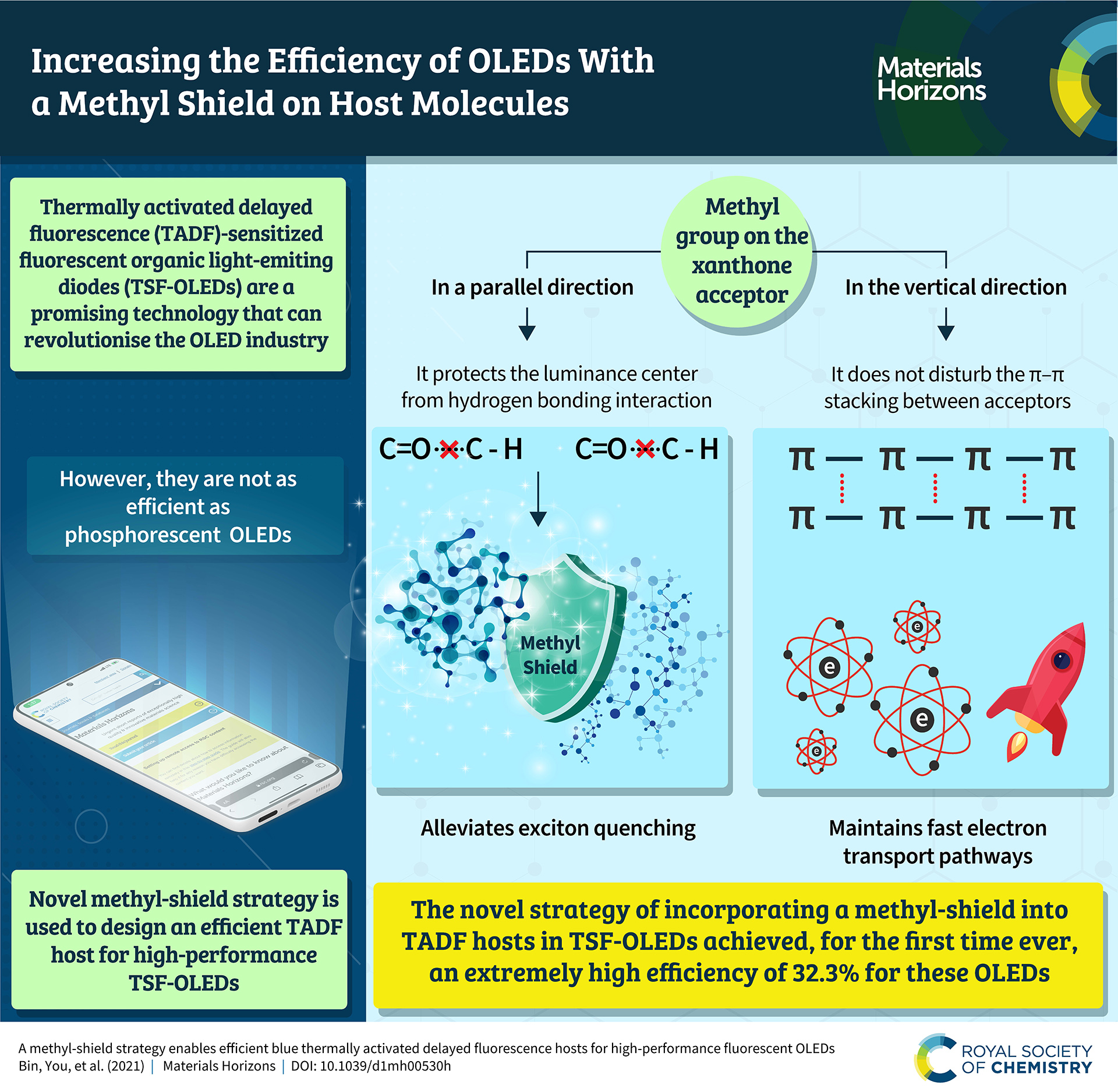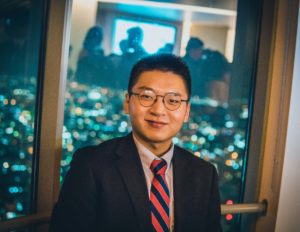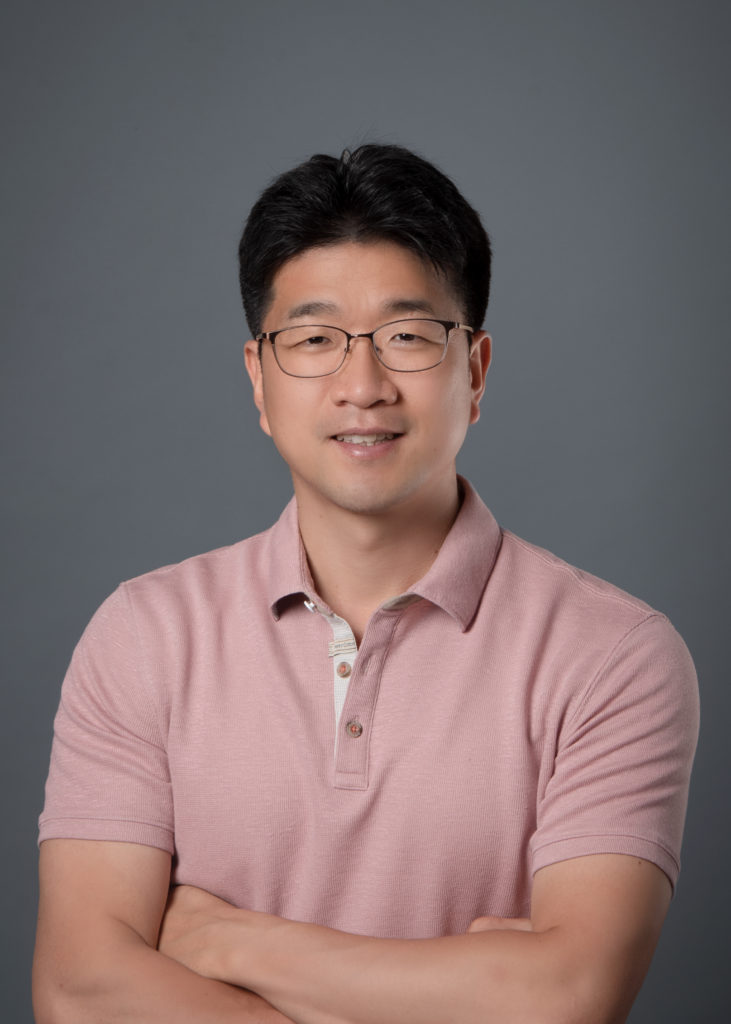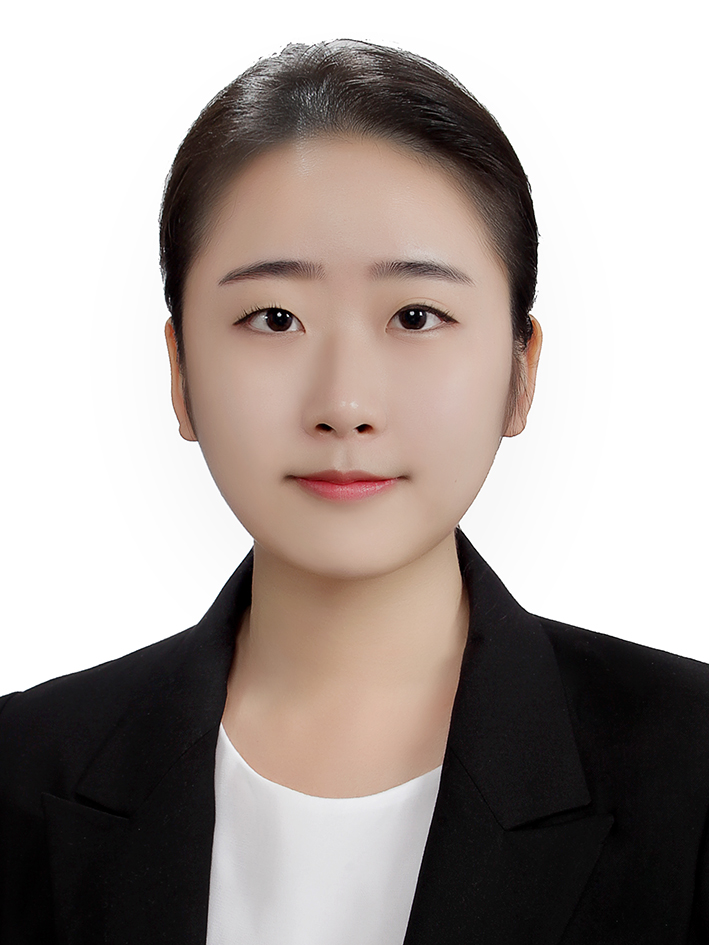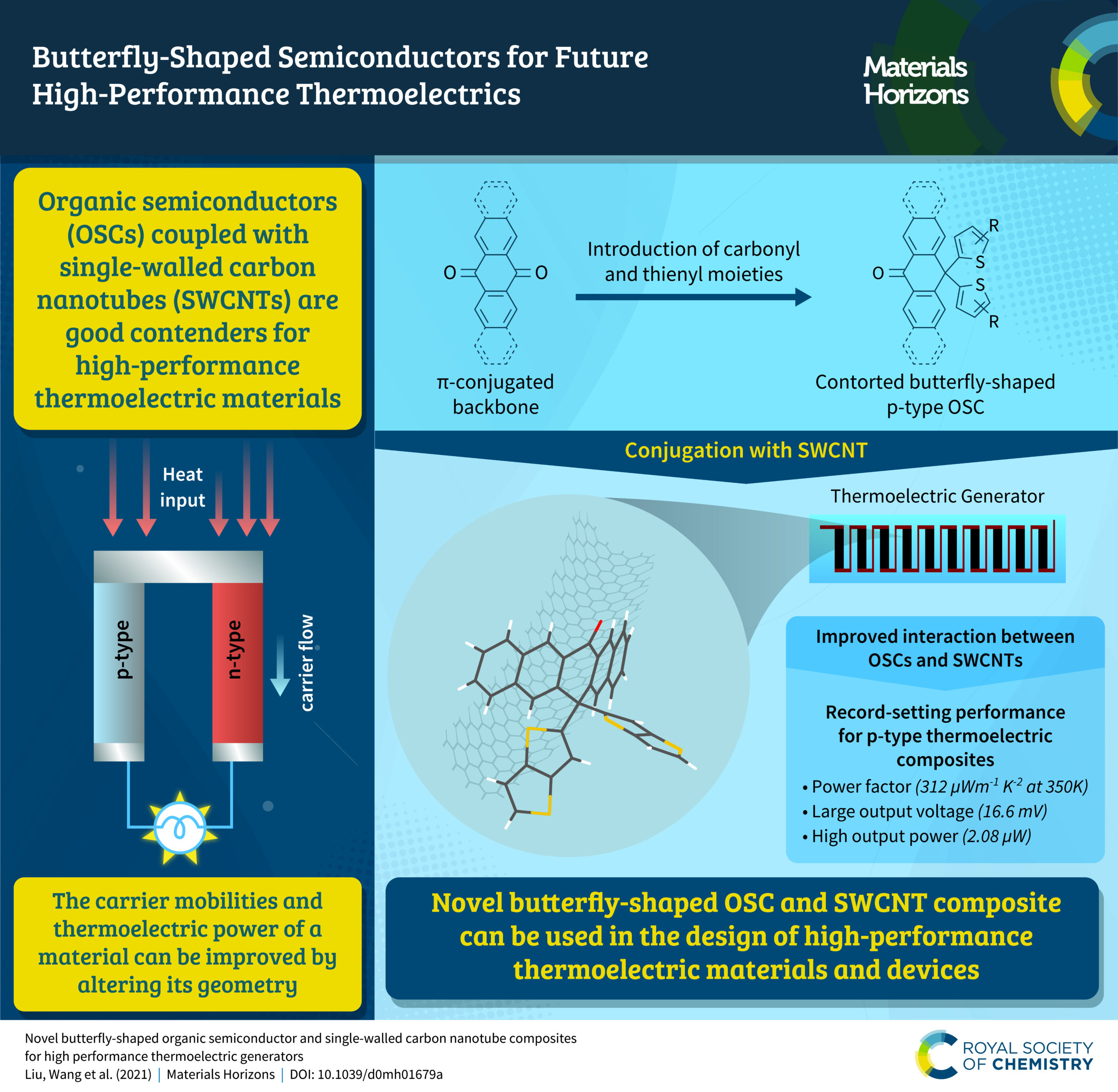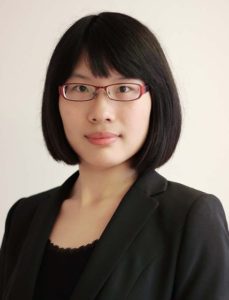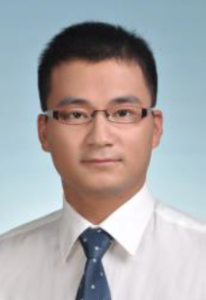A methyl-shield strategy enables efficient blue thermally activated delayed fluorescence hosts for high-performance fluorescent OLEDs
An infographic highlighting a novel methyl-shield strategy to design ideal TADF hosts for the improvement of OLED performance
We are pleased to present an infographic showcasing outstanding work by Zhengyang Bin and Jingsong You et al. on a series of highly efficient TADF host materials via a novel methyl-shield strategy! Learn more in the infographic below or get the full story from their Materials Horizons article.
This Communication was also featured in our Emerging Investigator series, find out more about this series here and check out the full interview with Zhengyang in this Editorial.
A methyl-shield strategy enables efficient blue thermally activated delayed fluorescence hosts for high-performance fluorescent OLEDs
You Ran, Ge Yang, Yang Liu, Weiguo Han, Ge Gao, Rongchuan Su, Zhengyang Bin and Jingsong You
Mater. Horiz., 2021, 8, 2025-2031
Meet the authors
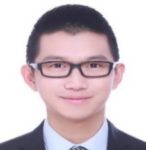 |
Zhengyang Bin, Sichuan University, ChinaZhengyang Bin received his Ph.D. degree at Department of Chemistry, Tsinghua University in 2018, supervised by Prof. Yong Qiu. He is now working at College of Chemistry, Sichuan University. He was selected as Materials Horizons Emerging Investigator in 2021. His research interest focuses on developing structurally non-traditional organic materials for high-performance OLEDs. Don’t forget to check out the Emerging Investigator series interview with Shengyang in this Editorial. |
|
 |
Jingsong You, Sichuan University, ChinaJingsong You received his Ph.D. degree from Sichuan University in 1998. He then worked as a post-doctoral fellow or a research scientist at Chung-Hsing University (China), Institute für Organische Katalyseforschung (Germany), Iowa State University (USA), and University of California, Irvine (USA). In 2004, he joined the College of Chemistry of Sichuan University as Professor. His research interest focuses on developing new concepts and strategies to synthesize π-conjugated frameworks, especially via the transition metal catalyzed C−H functionalization of (hetero)arenes, and exploring their applications in the synthesis of organic optoelectronic materials. |
|
 |
You Ran, Sichuan University, ChinaDr. You Ran was born in 1992 and received his Ph.D. degree in the Department of Chemistry from Sichuan University in 2021. His research focuses on efficient TADF host materials for TSF-OLEDs. |


